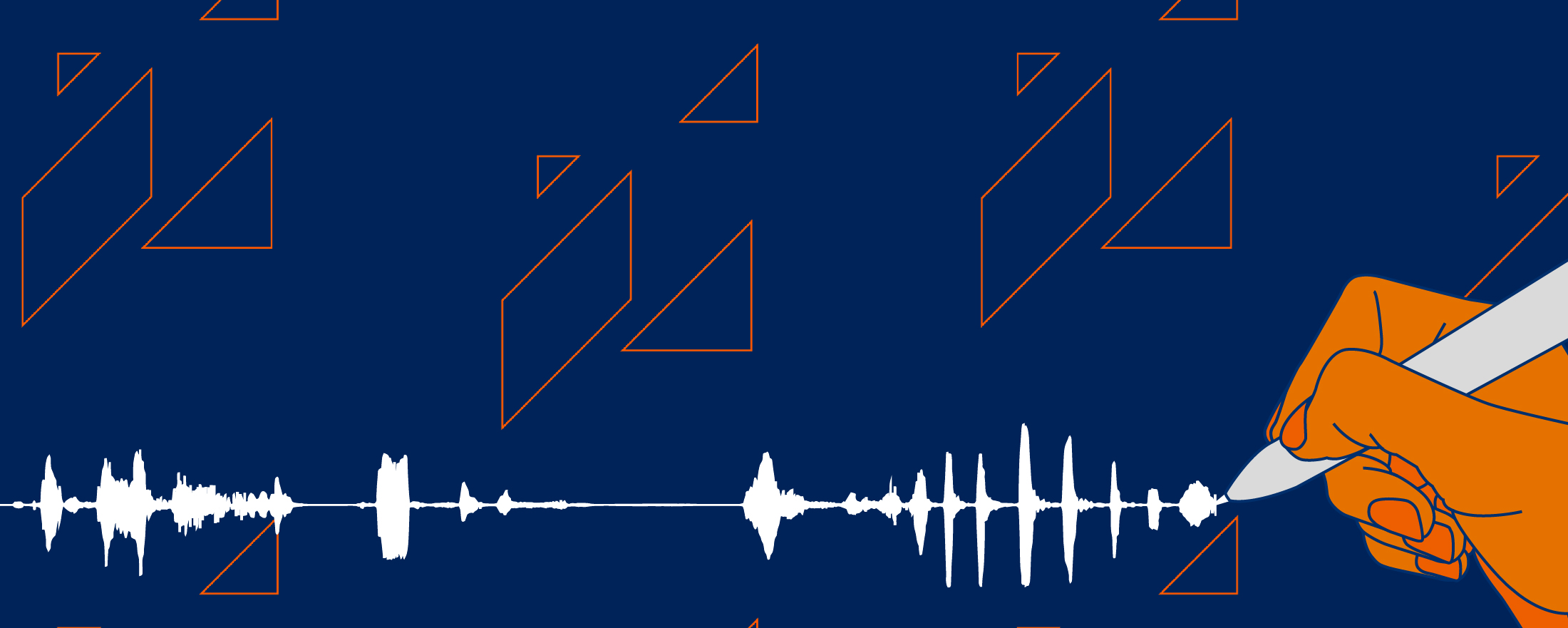On one of the many sunny days the University of Virginia experienced this spring, students in a class led by professor Steph Ceraso silently walked from the Lawn, around the Rotunda and past Newcomb Hall before quietly returning to its classroom in Pavilion VIII. They were not allowed to speak; they could only listen.
The stroll was intended to teach the students to listen to their surroundings, an important aspect of a new course, “Writing with Sound.”
“UVA is such an idyllic place, and it’s so rooted in traditional architecture,” said Gabrielle Carper, a rising fourth-year student who took the course. “But it’s got so much construction going on and there are so many buses and loud vehicles that it’s kind of jarring in this place that looks serene and quiet.”

Ceraso, who began teaching in the English department last fall, designed the course in which students spent the spring semester learning about sound and storytelling in podcasts. Throughout the semester, her students worked in groups on a final project: podcast episodes of their own.
“The podcasting world has exploded in recent years. Podcasts like ‘Serial’ and ‘S-Town’ are attracting millions of listeners,” she said. “Podcasting is clearly a significant form of 21st-century storytelling, and I believe that students should be able to create the types of media they consume in their everyday lives.”
Many students, including Carper, entered the class with little knowledge of or experience with podcasts.
“The only podcast I listened to before this class was ‘Serial,’” she said, referring to a podcast that debuted in 2014 and featured a week-by-week investigation of a 1999 Baltimore murder case. The award-winning podcast exceeded 80 million downloads by April 2015.
“So much of what we do now is going to be online, so it is important to learn about technology and audio editing,” Carper said. “It’s possible that podcasts could replace a lot of written articles in the future.”
Other students, including now-graduate Patricia O’Donnell, had more experience with podcasts. “I want to be a podcast producer and had already taken a class in podcast/radio production,” she said. “But this class allowed me to dive really deep into the intricacies of what it takes to produce a high-quality podcast.”
Ceraso was impressed with the podcasts produced by her students, who had only 16 weeks to learn not only how to tell a compelling story using sound and across multiple podcast episodes, but also how to use digital audio-editing tools.
“The students really exceeded my expectations,” she said. “I’m really proud of what they were able to accomplish.”
The team of Carper, Patricia O’Donnell, EricaJoy Oliverio and Cassidy Peregoy produced a three-episode podcast series, called “Monumentality.” It focused on historical – and controversial – spaces in Charlottesville, including Lee Park, UVA’s Academical Village and Vinegar Hill.
“The podcast looked into the role of monuments in how we remember history – specifically in regard to racism and slavery,” O’Donnell said.
According to Carper, creating one podcast required a week’s worth of work. “The planning process was pretty interesting,” she said. “It was a lot of research, and we interviewed professors at the University. I interviewed a dean. For the ‘Academical Village’ episode, we got a tour from a guide and we interviewed somebody who’s living on the Lawn next year. It was a long process.”
All of the time spent researching, interviewing and editing worked out for the team. “The creators of ‘Monumentality’ worked well together,” Ceraso said. “They were all invested in the topic and put a lot of effort into researching, developing and producing a thoughtful, relevant podcast with a consistent tone and identity. That is a hard thing to do, especially for beginners. They created a diverse range of work, including podcasts about food trucks, UVA sports culture and the mysteries of human nature.”
Ceraso, whose primary research interests are in digital writing and rhetoric and sound studies, hopes to continue teaching “Writing With Sound” at least once a year, perhaps partnering with local non-profits or UVA organizations in need of a podcast. She is currently working on a book project that reimagines listening education for the 21st century; she is interested in how to teach students to be more savvy consumers and producers of sound in their everyday lives, and in relation to the work they do as authors of digital projects.
Media Contact
Article Information
May 30, 2017
/content/exploring-podcasts-new-course-looks-future-digital-storytelling

